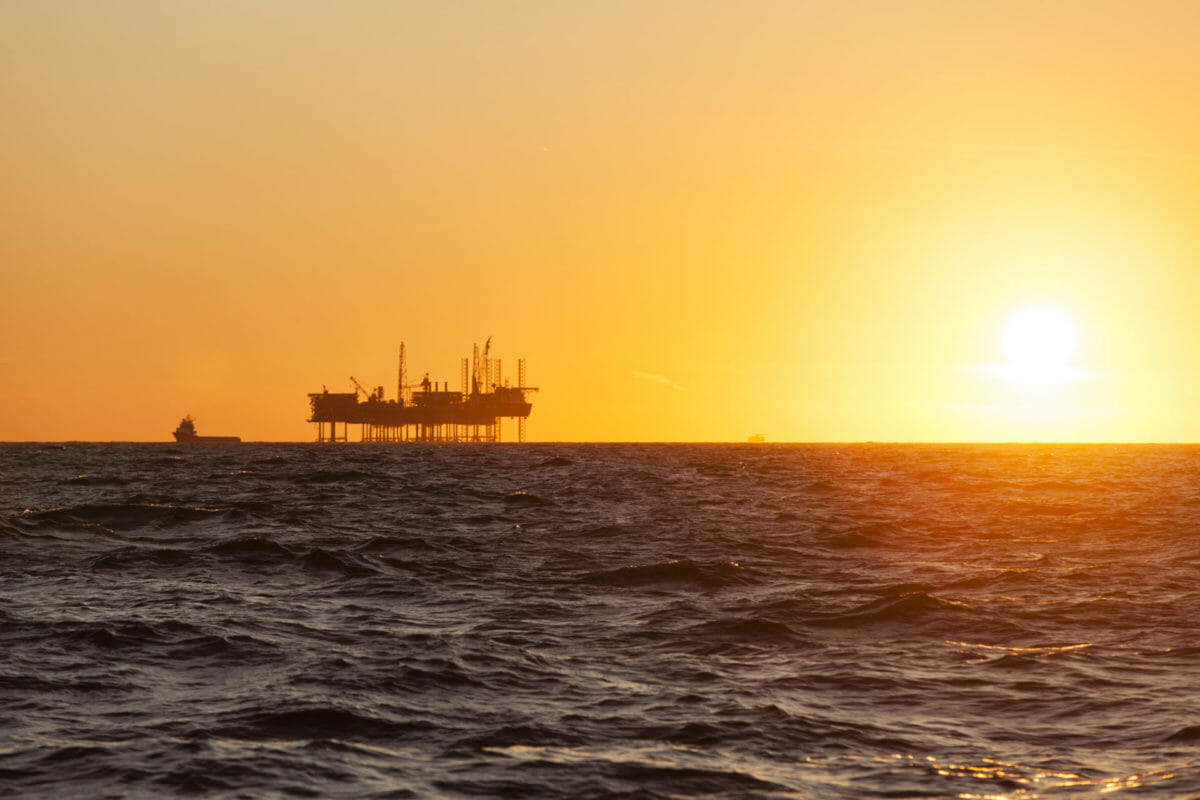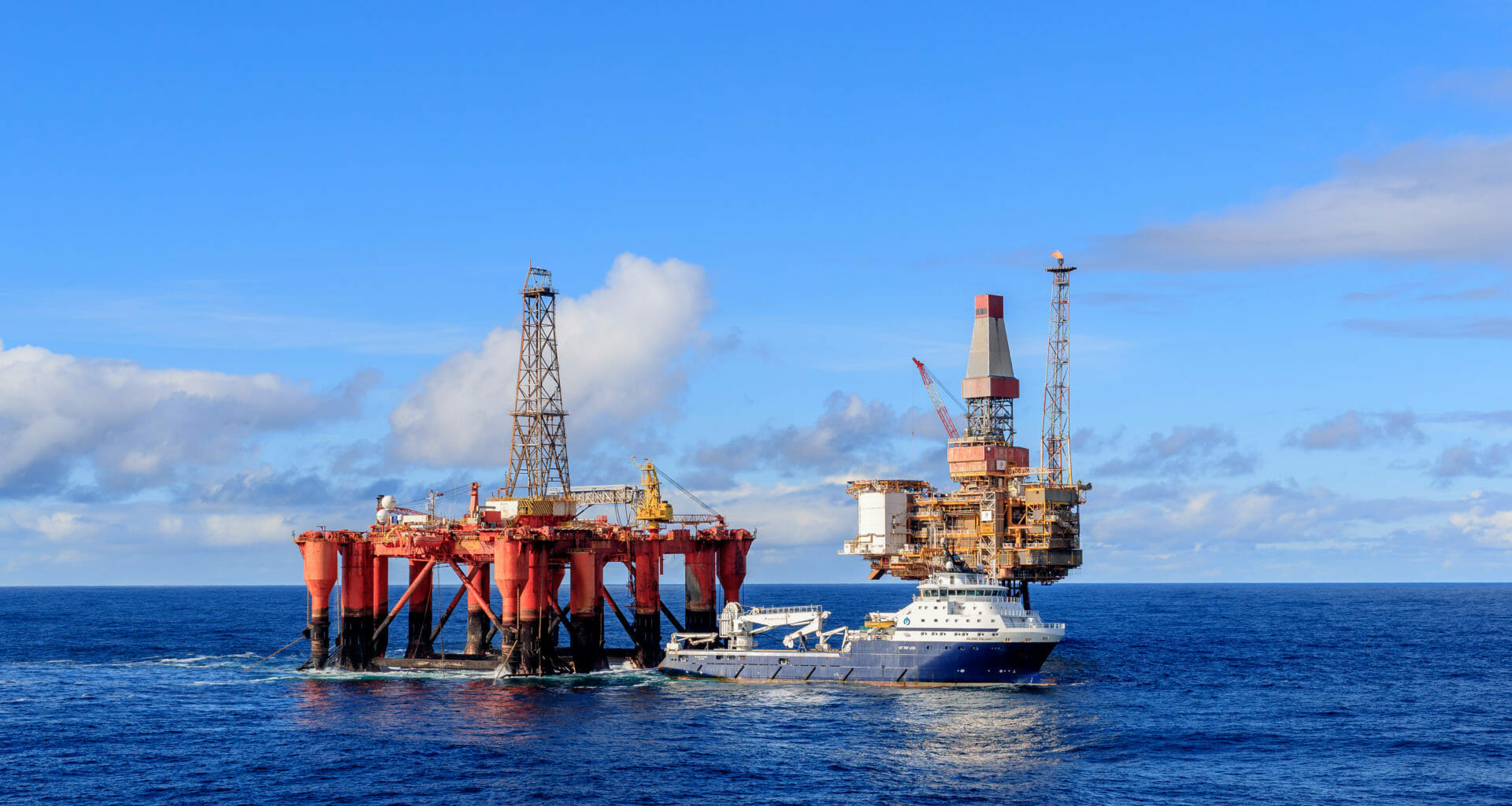
Climate campaigners have branded the Scottish Government “disgraceful” for consulting the oil and gas industry on “choreography around COP26” at meetings in 2020 and 2021.
The meetings of the Scottish Government’s Oil and Gas Strategic Leadership Group (SLG) were chaired by former Holyrood energy minister, Paul Wheelhouse. Members include big oil companies Shell, BP, Equinor, Petrofac as well as the offshore trade association Oil and Gas UK.
Minutes from the meetings include requests from Wheelhouse for the industry to “consider how it can contribute” to the summit. The then minister also said he was “keen to try and emphasise any progress being made and a single message from the sector” ahead of COP26.
One environmental group told The Ferret the meetings were evidence that the Scottish Government was “colluding to greenwash the oil and gas industry’s dirty image on the international stage”. Another said that ministers need to “find the courage to stand up to” Scotland’s fossil fuel sector.
The Scottish Government insisted that the oil and gas industry had “a positive role to play in our journey to net zero”. It argued that the North Sea had a “vibrant future” including in renewable energy, hydrogen and carbon capture, utilisation and storage.
The North Sea oil and gas industry said it was already demonstrating to the Scottish and UK governments how it “can support the transition to a low carbon future”.
The UK is host of the flagship United Nations climate conference, known as COP26. It is being held at the Scottish Event Campus in Glasgow between 31 October and 12 November.
The two meetings of the Oil and Gas SLG at which COP26 was discussed were held in December 2020 and February 2021. Minutes of the meetings were published on the Scottish Government website following a freedom of information request from The Ferret.
Wheelhouse lost his seat in May’s Scottish Parliament elections and has been replaced as energy minister by Michael Matheson.
Matheson chaired a meeting of the SLG in August, for which minutes have not yet been published. In future the group will be chaired by just transition minister, Richard Lochhead.

The Oil and Gas SLG was created to provide key figures from the public and private sector “a forum for discussion and to ensure partnership, collaboration and alignment between different parts of the industry”.
It was refreshed in 2017 to reflect the need for a transition away from fossil fuels. This has been embodied in the UK Government’s North Sea Transition Deal published in March 2021.
At its December 2020 meeting, the SLG asked for “clarity on the Scottish Government’s aspiration for COP26” and what that meant for the group. This led some of the members to lay out what they’d like to see from the government and their plans for the summit.
According to the minutes, Shell reflected on previous climate summits where it “had been present but had attracted strong negative criticism”.
The company expressed concern that it would not have “major progress” to announce at COP26 on key oil and gas industry solutions to the climate crisis including carbon capture and storage and hydrogen technology.
Shell added that it and the industry were “interested to see how they can help the Scottish and UK governments showcase progress” at the summit.
Wheelhouse noted the need for a “single message from the sector” ahead of the conference. The minutes also record the minister speaking about “moving at pace for the North Sea Transition Deal and the choreography around COP26”.
In February 2021 The Ferret reported that Shell had lobbied Wheelhouse about the “importance of balanced messaging at the summit” at two meetings in 2020.
At the December 2020 SLG meeting the British oilfield services multinational, Petrofac, noted the “importance of legitimising the supply chain involvement in COP26”.
The firm’s representative added: “We must have jobs, export, skills etc built on the back of the energy transition — 80-90 per cent involving companies already within the industry. Failing to note everything that needs to happen would be a bad thing.”
The Guardian reported in June 2021 that Petrofac has been under investigation by the UK Government’s Serious Fraud Office for allegedly paying million-pound bribes to secure contracts in nine countries. The firm is registered in Jersey and was headed by Ayman Asfari, who with his wife has donated almost £800,000 to the Conservative Party in a personal capacity.
At the SLG meeting the Norwegian oil company, Equinor, also commented on “the good discussion” around COP26. It added that “growing investment” in the sector would create “an enormous amount of opportunities” for the oil and gas industry to transition to low carbon technologies.
Wheelhouse reiterated his request for the industry to engage with COP26 at the February 2021 SLG meeting. He also called for members of the group to “share case studies of how companies and the sector is supporting a just and sustainable energy transition”.
There was also a major focus on the oil and gas industry’s public messaging about the proposed energy transition.
The SLG’s co-chair and former oil businessman, Melfort Campbell, argued that there were a “huge number of vital people” in Scotland who “do not like oil and gas, windmills and don’t understand the work that is being done” on the energy transition.
He noted that “language is an issue” and the “need to consider industry, cross industry and political communication”. He proposed a follow-up meeting to discuss these issues, arguing that “sentiment is going to drive behaviour”.
Posting in the meeting’s chat forum, Oil and Gas UK’s chief executive, Deirdre Michie, described Campbell’s comments as “spot on”. The industry body had “been working on a significant stakeholder engagement project”, she said.
According to Michie, the project would focus on gathering data on “how and whom” the industry should speak to and “with what messages and the right language”.
Also considered at the meeting was the “need to balance decline in oil and gas and drive investment in new energy sources”.
This discussion appears to have included input from the North Sea oil tycoon, Sir Ian Wood, although his comments are not detailed in the minutes. Wood is listed as a guest participant.
Melfort Campbell voiced his agreement with Wood’s points in the chat forum. The industry’s “ability to diversify is based on investment, which can only come from trading profits which for a time will only come from oil and gas trade”, he added.
Another participant, director of the Global Energy Group, Terry Savage, agreed that Wood’s points were “very well made”. He argued that transition needed to be managed “at a realistic pace, as too many are wanting to turn their backs on a vital part of the long term strategy of the global energy mix”.
Fossil fuel companies should play no part at COP26 or be trusted to come up with solutions to the climate crisis.
Mark Ruskell, Scottish Greens
Head of campaigns at Friends of the Earth Scotland, Mary Church, said that ministers “need to find the courage to stand up to the oil and gas industry, say no to new fossil fuels and turn rhetoric on just transition into reality.”
She added: “It is seriously alarming to see the Scottish Government discussing choreography around COP26 with some of the most polluting companies on the planet. Ministers should not be helping fossil fuel companies plan their public relations strategy.”
Scottish Greens climate spokesperson, Mark Ruskell MSP, argued that “fossil fuel companies should play no part at COP26 or be trusted to come up with solutions to the climate crisis”.
He said: “The priority must be to invest in the alternatives and create jobs as part of a just transition, part of what we have secured in our cooperation deal with the Scottish Government.”
Scott Tully, from campaign group Glasgow Calls Out Polluters, called the Scottish Government “disgraceful” for “colluding to greenwash the oil and gas industry’s dirty image on the international stage”.
He said: “The Scottish Government and the fossil fuel industry alike seem to see COP26 as a cynical PR opportunity — completely divorced from the reality of the climate crisis — so it is perhaps no surprise to see them working out how to market their false and flimsy solutions.”
The oil and gas sector has a positive role to play in our journey to net zero.
Spokesperson, Scottish Government
Jenny Stanning, Oil and Gas UK’s external affairs director, defended the industry’s right to be involved in discussions about COP26.
She said: “COP26 is an opportunity for national governments to showcase global climate change leadership and our industry is already in action demonstrating to both the UK and Scottish governments how we can support the transition to a low carbon future.”
The Scottish Government stressed it was “wholly committed” to ending Scotland’s contribution to climate change by 2045 and to doing so “in a way that is just and leaves no-one behind.” It has proposed a four-nation summit to discuss a “just transition” to net zero.
“The oil and gas sector has a positive role to play in our journey to net zero,” said a government spokesperson.
“We are clear that the North Sea has a vibrant future in offshore energy integration including renewable energy, hydrogen, and carbon capture, utilisation and storage.”
The spokesperson added: “COP26 is an opportunity for the sector to continue to develop and accelerate its plans for a just transition, and recent Oil and Gas Strategic Leadership Group meetings included discussion on how to achieve this.”
The future of the North Sea oil and gas industry has come under increased scrutiny in recent months. The International Energy Agency warned in May that the world cannot afford to green-light any more fossil fuel projects if it wants to reach net zero emissions by 2050.
The Scottish and UK governments have also faced mounting pressure from green groups and politicians to oppose plans for the new Cambo oil field off the coast of Shetland. One of the developers is Shell, a member of the Oil and Gas SLG.
This story is part of an investigation funded by the campaign group, Uplift. The Ferret retains complete editorial control.
Cover image thanks to iStock/arild lilleboe.















This story is based on innuendo. The oil and gas companies exist and have a very significant presence and have influence, too. They employ a lot of people. So, they will have to be part of the change. Engaging with them does not mean complying with their wishes. The switch away from oil and gas is taking place and will continue to take place, but is something which takes time to undertake it safely and to enable people to sustain their lives while the change is taking place. I have a gas boiler, which I plan to replace with a more appropriate supply as soon as is feasible, but, in the meantime, I have to continue to use it